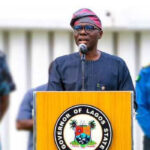
THE recent admission by the Minister of Solid Minerals, Dele Alake, that some “powerful Nigerians” are behind illegal mining activities in the country is cold comfort to the citizens. While the country loses billions of naira to illegal miners, their activities also fuel banditry, terrorism, kidnapping and widespread criminality in several states. The government should therefore deploy all its law enforcement resources to identify the perpetrators, prosecute them, and stamp out the illegal enterprise.
Moreover, mining offers a huge untapped economy-boosting route for the states and the Federal Government. Properly organised, it has the potential to aid industrialisation, export diversification and mass employment. But neglected for decades while the government fixates on oil and gas, illegal syndicates and artisans are having a field day.
Defending the ministry’s 2024 budget at the House of Representatives, Alake noted that though the government had not identified the culprits, it knew that influential Nigerians controlled illegal mining operations.
He added, “Those powerful people behind them (illegal miners) are Nigerians; we are identifying them with both kinetic and non-kinetic means. The insecurity in the mining areas is sponsored by illegal miners and these are powerful individuals in the society.”
In 2017, the government estimated that the country lost $9 billion annually to illegal mining. It said the losses arose largely from the illegal export of gold, lead, zinc, tin, and coal extracted in various parts of the country. Alake stressed that illegal mining deprived the government of royalties and taxes.
But talk is cheap. Successive governments have identified the problem but failed to solve it. In 2021, the then minister, Uche Ogah, said that “gold smuggling in Nigeria is often done using private jets.” He added that the country lost $5 billion to gold smuggling in the six years to 2018.
Nigeria must make the right choices. It is blessed with minerals with 44 different types officially identified and available in diverse quantities in over 500 locations across the 36 states and the Federal Capital Territory.
The Solid Minerals Development Fund, a partnership of Nigeria and the African Finance Corporation, estimates the country’s potential mining industry at $700 billion. Agusto & Co says gold from Zamfara alone can net $1.4 billion annually, while Olugbenga Okunlola, President of the Geological Society of Africa, estimates gold deposits in Osun State to be worth $ 5 billion.
Gold is also available in Niger, Kebbi, Kaduna, Kogi, Kwara, Katsina, Kano, Nasarawa and Bauchi states and the FCT. Kogi and Nasarawa states have a rich diversity of many mineral types, and every Nigerian state has at least a few types in commercial quantities.
In many states, illegal mining is a prevalent and organised industry, aided by complicit officials, local chiefs, and rogue security personnel. In Zamfara, it results in lead poisoning of children, locals, water sources and the soil. It is also integral to sustaining the terrorism, banditry, and kidnapping industries.
It is time to shift from talk to action. The Federal Government, working with the state governments, should decisively stamp out illegal mining. It should identify the barons, local and foreign, prosecute them, and close their illegal production, smuggling and money laundering operations.
All the existing programmes, including Alake’s seven-point agenda and a new partnership with PwC, should be fast-tracked, and translated into reality. While Nigeria has gold reserves of $1.4 trillion, according to CEIC, Switzerland exported $86.7 billion, the Observatory of Economic Complexity said in 2021. Ghana and South Africa remain the top two producers in Africa.
The 36 states should demand, and play a greater role in exploiting minerals to kick-start industrialisation, diversify revenue sources, and stimulate mass employment.




